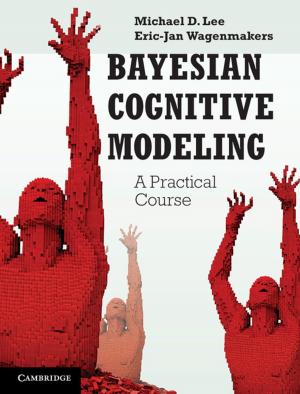The Cambridge Handbook of the Psychology of Prejudice
Nonfiction, Health & Well Being, Psychology, Social Psychology, Social & Cultural Studies, Social Science| Author: | ISBN: | 9781316889008 | |
| Publisher: | Cambridge University Press | Publication: | October 31, 2016 |
| Imprint: | Cambridge University Press | Language: | English |
| Author: | |
| ISBN: | 9781316889008 |
| Publisher: | Cambridge University Press |
| Publication: | October 31, 2016 |
| Imprint: | Cambridge University Press |
| Language: | English |
The Cambridge Handbook of the Psychology of Prejudice aims to answer the questions: why is prejudice so persistent? How does it affect people exposed to it? And what can we do about it? Providing a comprehensive examination of prejudice from its evolutionary beginnings and environmental influences through to its manifestations and consequences, this Handbook is an essential resource for scholars and students who are passionate about understanding prejudice, social change, collective action, and prejudice reduction. Featuring cutting-edge research from top scholars in the field, the chapters provide an overview of psychological models of prejudice; investigate prejudice in specific domains such as race, religion, gender, and appearance; and develop explicit, evidence-based strategies for disrupting the processes that produce and maintain prejudice. This Handbook challenges researchers and readers to move beyond their comfort zone, and sets the agenda for future avenues of research, policy, and intervention.
The Cambridge Handbook of the Psychology of Prejudice aims to answer the questions: why is prejudice so persistent? How does it affect people exposed to it? And what can we do about it? Providing a comprehensive examination of prejudice from its evolutionary beginnings and environmental influences through to its manifestations and consequences, this Handbook is an essential resource for scholars and students who are passionate about understanding prejudice, social change, collective action, and prejudice reduction. Featuring cutting-edge research from top scholars in the field, the chapters provide an overview of psychological models of prejudice; investigate prejudice in specific domains such as race, religion, gender, and appearance; and develop explicit, evidence-based strategies for disrupting the processes that produce and maintain prejudice. This Handbook challenges researchers and readers to move beyond their comfort zone, and sets the agenda for future avenues of research, policy, and intervention.















